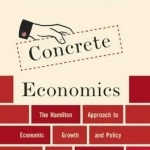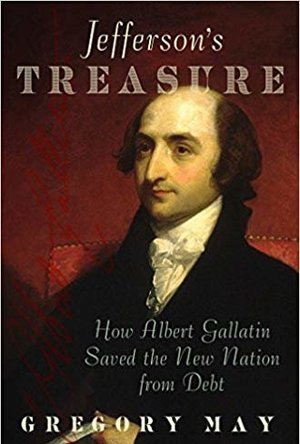
Immortal
Book
This is the two time winner of the William Hill Sports Book of the Year Award on George Best,...

I'm Sorry I Haven't a Clue: Chairman Humph - A Tribute
Stephen Fry, C. Bb and Humphrey Lyttelton
Book
BBC Radio 4 celebrates the remarkable life of Humphrey Lyttelton, jazz genius, radio legend and...
Acanthea Grimscythe (300 KP) rated Where Dead Men Meet in Books
May 16, 2018
Well, the answer there is clear as day, but I’ll leave it at that. There’s nothing original about the plot in this book. Absolutely nothing, which makes it a rather dull read for me. Luke Hamilton is a misfit. An orphan of a wealthy family, too. What should be a major plot twist in Where Dead Men Meet becomes obvious before its actual reveal, too. This is a serious no-go for me. If I’ve read it once, I don’t want to read it again. If I’ve watched it once, I don’t typically want to read it again either.
The characters are alright. Luke Hamilton seems a bit soft, Pippi is roguish, and the others, which are largely minor in comparison, are fairly standard in their actions. I never felt any connection to any of them. If you’ve been reading my blog for a while, then you know that my emotional connection to a character is a must.
Despite these major flaws, Mark Mills can write. Though I don’t care much for Where Dead Men Meet‘s plot, Mills’s style of writing is nice. I haven’t had the opportunity to read more of his work, but, provided it is more original in its concept, I’d definitely give it a try. This book is probably better suited to readers that prefer more cinematic thrillers.
I would like to thank the publisher for providing me with an advanced copy via NetGalley for unbiased review.
Sassy Brit (97 KP) rated Jefferson's Treasure: How Albert Gallatin Saved the New Nation from Debt in Books
Jun 5, 2019
So who was this man that undid Alexander Hamilton’s fiscal system, rejecting it along with Madison and Jefferson? Because both Presidents did not understand the financial system, they depended on Gallatin to reform it. Gallatin arrived in America in 1790 from Geneva and rose up to become a trusted advisor of the Republicans. Six years before Jefferson was elected President, Gallatin’s Pennsylvania neighbors rebelled against the tax on whiskey. He supported them in principle but opposed the violence that ensued, burning the local tax collector’s house, robbing the mail, and marching on Pittsburgh.
The play “Hamilton” uses revisionist history. The real Hamilton believed in big government and wanted to continue funding federal deficits. He based his theories on the British who used the money to fund their large military conflicts, believing that the ability to borrow endless amounts of money would allow the new United States to become a great nation. Jefferson and Madison thought Hamilton’s system, straight from the British way, was tainted with tyranny. As May noted, “It made the people pay obnoxious taxes in order to fund interest payments on a mounting federal debt and the costs of an expensive military establishment. It shifted money from ordinary taxpayers to the relatively few rich men who held the government’s bonds. That was just the sort of thing that had led Americans to revolt against Britain in the first place.”
May believes, “The hip-hop immigrant hero of the Broadway musical is a myth. The musical might be a great work of art, but is relies on misconceptions of Hamilton. He was not an immigrant, but a migrant within the British Empire. Also, he was not a man of the people, as Gallatin was, but an elitist.”
While Hamilton committed to paying only the interest on the government’s debt, Gallatin committed the government to repaying fixed amounts of the principal each year. He also insisted that the government should never spend more than it earned except in times of war. By slashing federal expenses, Gallatin was able to get rid of the tax on whiskey and abolish the entire internal revenue service.
The Republicans, an agrarian society, distrusted these elitists where two-thirds of the government debt belonged to a few hundred very wealthy men residing mainly in Philadelphia, New York, and other mercantile cities. They saw Hamilton’s plan of collecting taxes from ordinary citizens as a way for a few rich men to become even wealthier. Implementing these excise taxes required government officials to inspect, quantify, and mark the items subject to tax.
The Hamilton system benefited the wealthy debt holders and spectators at the expense of the average taxpayer who had to pay the interest. The government would borrow more than the people could pay. Hamilton tried to hide how much money the government was actually spending and spiraled the debt higher and higher.
This was an important part of the British tax base, and “I wanted to show how unpopular it was. Hamilton and company were resented because they created a tax collection network that affected the lives of ordinary citizens. The excise tax is a form of internal taxation, while tariffs are a form of external taxation that fell on the well to do. Remember mostly the well to do bought imports. The Republicans once they came to power relied on import duties rather than excise taxes.”
May further explained, “When Jefferson and his administration came to power it was Gallatin who got rid of Hamilton’s deficit finance system and cut taxes. By the time he has left office he has repaid half the federal debt and set up a program for repaying the rest.”
Anyone who wants to understand the early economic systems of the Founding Fathers will enjoy this book. It shows how Gallatin, by killing Hamilton’s financial system, abolished internal revenue taxes in peacetime, slashed federal spending, and repaid half of the national debt.

Salinger: A Biography
Book
J. D. Salinger was one of the twentieth century's greatest writers. He was also one of its most...

Sustainability Planning and Collaboration in Rural Canada: Taking the Next Steps
Lars K. Hallstrom, Mary Beckie, Glen T. Hvenegaard and Karsten Mundel
Book
Rural communities, often the first indicators of economic downturns, play an important role in...

The Vicious & The Virile VII: Seven Freaky Stories for Adults
Book
A collection of short horror stories, The Vicious and The Virile VII offers a captivating...
Dark Fantasy Short Story Collection

The Princess Diarist
Book
The Princess Diarist is Carrie Fisher's intimate, hilarious and revealing recollection of what...
Star Wars Princess Leia Carrie Fisher Harrison Ford Mark Hamilton

Concrete Economics: The Hamilton Approach to Economic Growth and Policy
Stephen S. Cohen and J. Bradford DeLong
Book
"an excellent new book" -- Paul Krugman, The New York Times History, not ideology, holds the key to...


